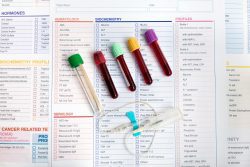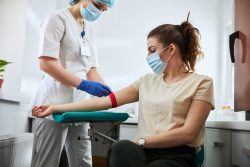Addressing the Critical Shortage of Phlebotomists in Arizona: A Call to Action
Arizona, like many states across the country, is facing a critical shortage of phlebotomists. These skilled healthcare professionals play a crucial role in the healthcare system by collecting blood samples for diagnostic testing, but the increasing demand for their services is outpacing the available workforce. In this blog, we’ll explore the factors contributing to the shortage of phlebotomists in Arizona and how Phlebotomy Response Team is addressing this pressing issue plaguing healthcare institutions throughout Mesa AZ .
Factors Contributing to the Shortage:
1. Growing Demand: The demand for phlebotomists is on the rise due to an aging population, advances in medical technology, and an increase in chronic diseases requiring regular blood testing. However, the supply of trained phlebotomists has not kept pace with this growing demand, leading to workforce shortages.
2. Limited Training Programs: There are limited educational opportunities for individuals interested in pursuing a career in phlebotomy in Arizona. Fewer training programs and educational institutions offering phlebotomy courses result in a smaller pool of qualified candidates entering the field.
3. High Turnover Rates: Phlebotomy can be a physically and emotionally demanding profession, leading to high turnover rates among practitioners. Factors such as job stress, long hours, and burnout contribute to phlebotomists leaving the profession, further exacerbating the shortage.
Addressing the shortage of phlebotomists in Arizona requires a multi-faceted approach involving various stakeholders. Here’s a comprehensive strategy to fix the shortage:
1. Expand Training Programs: Increase the availability of phlebotomy training programs in Arizona by collaborating with educational institutions, healthcare organizations, and government agencies. This may involve providing funding and resources to support the development of new programs and expanding existing ones.
2. Incentivize Training: Offer scholarships, grants, and other financial incentives to individuals interested in pursuing phlebotomy training. This can help attract more students to the field and alleviate barriers to entry, such as tuition costs and living expenses.
3. Improve Training Accessibility: Make phlebotomy training more accessible by offering online courses, evening classes, and flexible scheduling options. This allows individuals with diverse backgrounds and schedules to pursue training without disrupting their existing commitments.
4. Enhance Workforce Development: Implement workforce development initiatives aimed at retaining phlebotomists in the field and supporting their professional growth. This may include offering continuing education opportunities, career advancement pathways, and mentorship programs.
5. Promote Public Awareness: Raise awareness about the importance of phlebotomy and the rewarding career opportunities available in the field. This can be done through public awareness campaigns, career fairs, and outreach events targeting high schools, colleges, and community organizations.
6. Foster Partnerships: Foster partnerships between healthcare organizations, educational institutions, and government agencies to address the shortage collaboratively. By working together, stakeholders can leverage resources, share best practices, and implement innovative solutions to fix the shortage.
The shortage of phlebotomists in Arizona poses significant challenges to the healthcare system, impacting patient care and laboratory operations. Addressing this shortage requires a concerted effort from stakeholders across the healthcare industry, including policymakers, educators, employers, and healthcare professionals. By investing in training programs, workforce development initiatives, and public awareness campaigns, we can work together to ensure an adequate supply of skilled phlebotomists to meet the growing demand for their services and improve healthcare outcomes for all Arizonans.




